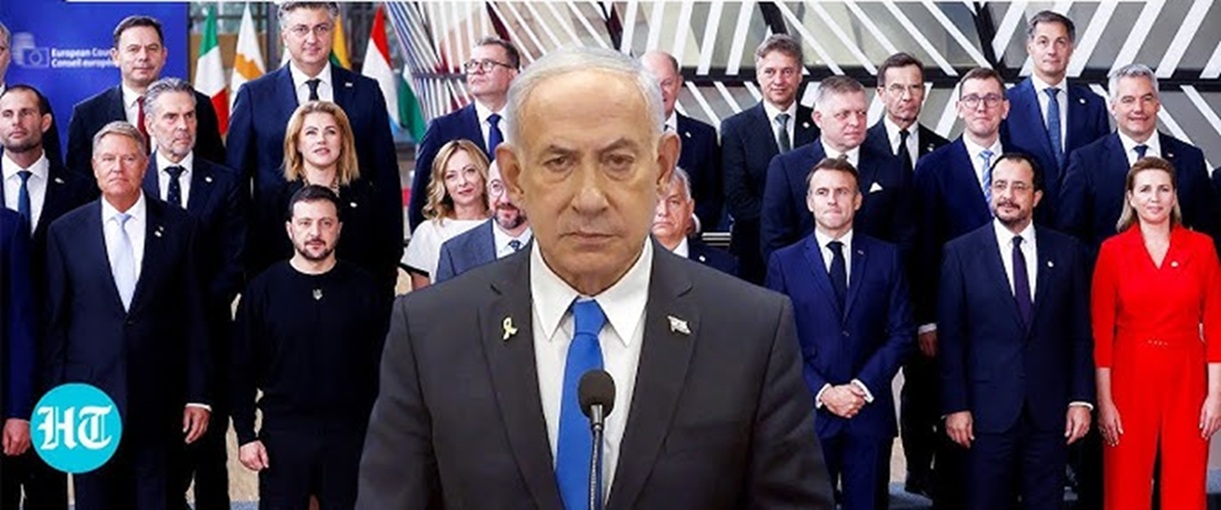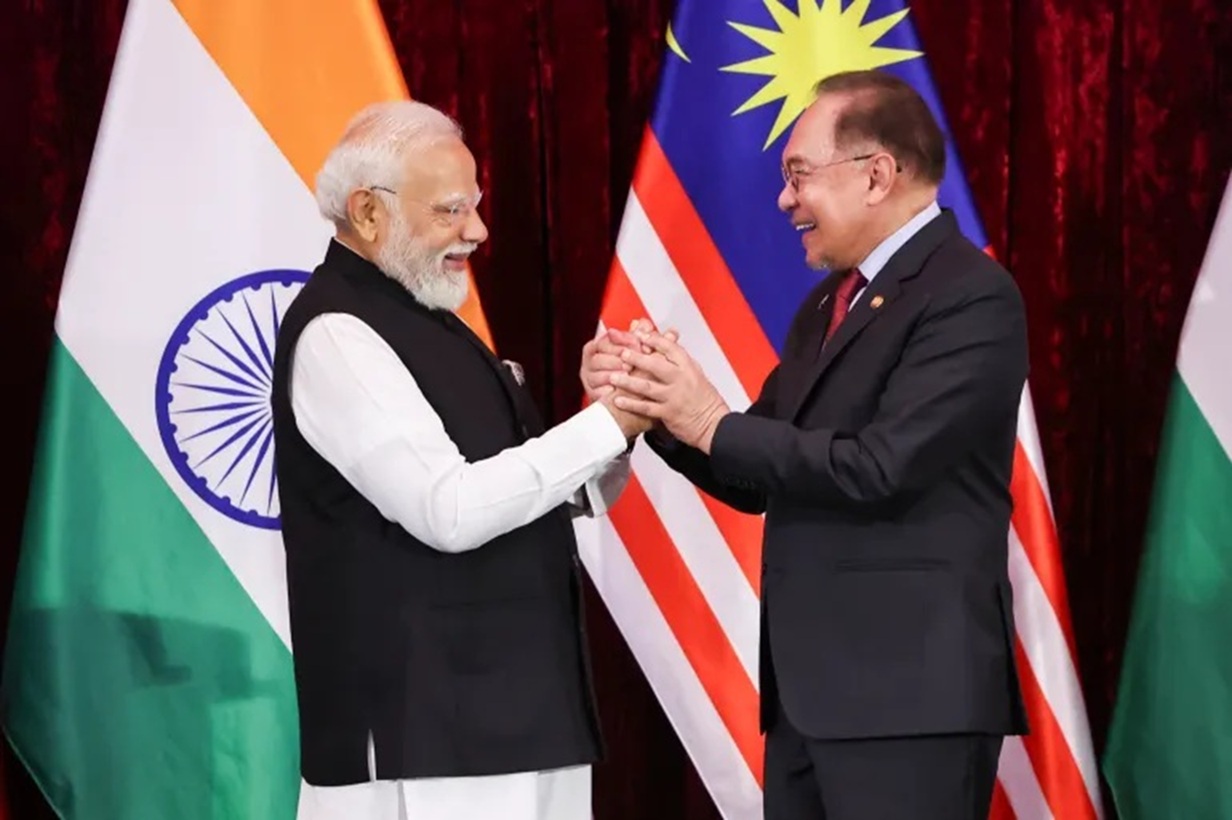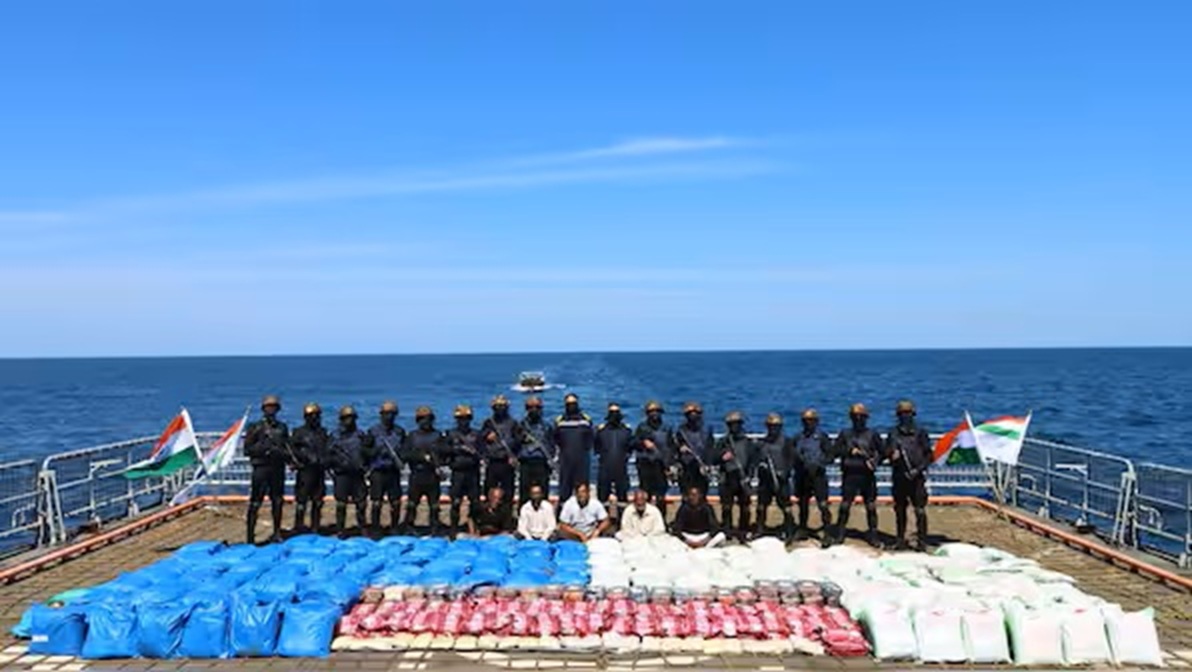As the longest-serving Israeli Prime Minister, Benjamin Netanyahu is famous for his political wizardry and survival skills. But Netanyahu is currently facing increased criticism from the Israeli public as well as from former senior politicians and ex-security officials. Managing the diplomacy with Europe and other nations has become a big challenge for Netanyahu.
The upcoming UN General Assembly (UNGA) could be a defining one about Palestine, as it celebrates the 80th anniversary, and one of its first resolutions was to create a State of Israel and Palestine in 1948. But this time round, several European countries, led by France, have decided to declare their recognition of Palestine at the UNGA.
As the two-year-old Israel-Hamas war rages on and the plight of Gazans sees no respite. Prime Minister Benjamin Netanyahu has begun to face multiple challenges, both domestic and international. The hapless Israeli hostages in the captivity of Hamas remain the sole negotiating leverage for the terror outfit, and the unremitting bombardment by the Israeli Defence Forces on Gazans and denial of humanitarian aid have been decried and condemned by the international community, but to no avail.
Meanwhile, local protests from the family and friends of the hostages and anti-war Israelis continue as they fear that, eventually, in their quest to eliminate and destroy Hamas, their ultra-rightist government could resort to the ‘Hannibal doctrine’, sacrificing their near and dear ones. Multiple reports have also emerged of former Israeli veterans and other influencers and politicians expressing their angst against the Netanyahu government’s plans to take over Gaza, which they fear could become their Vietnam.
But the more worrying part for Israel is the increasing condemnation and resultant diplomatic isolation and trade and arms embargoes, due to the indiscriminate and incessant military campaign against the civilian population, by the European countries, hitherto mostly allies and sympathetic to the Jewish state.
As French President Emmanuel Macron prepares to recognise the State of Palestine at the upcoming UNGA in September, along with several other European countries, he has openly rebuked Israeli Prime Minister Benjamin Netanyahu, condemning Israel’s ongoing war in Gaza as both “murderous and illegal”.
In an open letter, Macron criticised the rising civilian death toll, the expansion of settlements, and what he described as the humanitarian catastrophe unfolding in Gaza. He stressed that France cannot remain silent while “innocent lives are being destroyed on a massive scale”. This latest development has added strain to French-Israeli relations, which were already tense over Netanyahu’s repeated claims that Europe, including France, is fuelling antisemitism. On these kinds of antisemitism charges against the French government, even the US Ambassador to France was pulled up by Quai d’Orsay. France is even thinking of opening a mission in the West Bank and allowing Palestine to open one in Paris.
Pope Leo issued a “strong appeal” for an end to the nearly two-year conflict between Israel and Hamas, calling for a permanent ceasefire, the release of hostages, and unrestricted humanitarian aid. Speaking at his weekly audience in the Vatican, the Pope lamented that the war has brought “terror, destruction, and death”, urging all sides to respect international humanitarian law and ensure relief reaches civilians in need.
Sweden, Denmark and the Netherlands called on the EU to halt trade with Israel, citing an “extremely disturbing & intolerable” humanitarian crisis in Gaza. Norway has withdrawn or suspended huge investments in Israeli and even US companies. Belgium says it is planning to recognise Palestine and sanction Israel, urging that “all means at our disposal must be used to prevent genocide”. Spain, Ireland, and Malta, among others, have already taken a hard line.
A miffed Israel also slammed exclusion from the UK arms fair. The UK is still indecisive. Hungary and Argentina retain their affiliation with Israel even though they are facing some music at home for their stance.
Brazil has refused to give agreement to the Israeli Ambassador while also deciding to support and join South Africa in their case of genocide against Israel.
Malaysia urges the suspension of Israel’s UN membership and the imposition of sanctions to stop its occupation and destruction of Gaza.
The Israeli government has obviously criticised and condemned these moves, terming them as support for terrorism perpetrated by Hamas.
Regional countries led by Saudi Arabia continue to condemn various acts by the ultra-right government of Netanyahu, especially continued violence against women and children and the displacement of millions and the wilful denial and disruption of the supply of humanitarian assistance. Egypt and Jordan—both with longstanding peace agreements with the Jewish state—are moving their forces to the respective borders.
Even as the International Criminal Court and International Court of Justice pursued charges against Israel and its leaders, including arrest warrants, Israel also tried to play its cards, calling out the genocide of Armenians and others by the Ottomans, which provoked the Turks even more, who, despite the ongoing war, have maintained trade relations with Israel.
Turkey’s foreign ministry lashed out at Israeli Prime Minister Benjamin Netanyahu over remarks acknowledging the Armenian “genocide”, denouncing them as a bid to cover up the bloodshed in Gaza. Turkey has now reportedly cut all trade ties with Israel and is not allowing Turkish ships to go to Israeli ports and has closed its airspace to Israeli aircraft, according to a statement by Turkey’s foreign ministry.
The ‘wifey diplomacy’ in the context of Eurasian and West Asian wars was also quite interesting. It will be recalled that US First Lady Melania Trump wrote to President Vladimir Putin to stop the Ukraine war for the sake of innocent children. Following that, Emine Erdogan wrote to Melania Trump to intervene with President Trump to stop supporting the Gaza carnage with the same concern as that for Ukraine.
Even India, having a robust strategic partnership with Israel and having condemned the terror attacks of October 7, has expressed its deep concern about the killing of innocent civilians and several journalists and the plight of Gazans and has been urging for dialogue and diplomacy to prevail.
But the determined Israeli military says it has begun preliminary operations and initial stages of an attack on Gaza City, operating with significant force on the outskirts. Non-serious negotiations for a fragile ceasefire continue as pro forma efforts.
The United States, which, despite internal opinion divides, supports the Israeli government totally and has even barred Palestinian leaders, including President Mahmoud Abbas, from attending the UN General Assembly in New York, accusing them of backing terrorism and glorifying violence, thereby exposing itself even more.
Iran, perhaps as a distraction, is ready to retaliate against Israel as the Europeans start on the ‘snapback’ sanctions—the last straw in the ring. These sanctions will be devastating and will have a global applicability against Iran, even though they are one month away. While Russia has a nuanced approach, China has broadly cast its lot against Israel. In any case, leaders of India, China, Russia, Iran and Turkey are in Tianjin for the SCO Summit as the Trump factor continues to impact each country’s strategic choices and calculations.
As Hamas and Israel remain in a heightened internecine war, the regional actors appear to have daggers drawn against the US-Israel combine, even if their disdain for the Houthis, Hamas and Hezbollah—the Iranian proxies—remains unqualified. US-Israeli hope of expanding the horizons of the Abraham Accords may have been stunted. No doubt Syria and Lebanon may be cajoled into it; Saudi Arabia—the real one—has slipped away for some time.
As the possibility of expanding volatility and deepening regional fissures becomes real, according to a survey, 66 per cent of Israelis fear diplomatic isolation. Perhaps it’s time for the Israeli leaders to look at this fact as well and avoid following the approach, ‘If force does not work, use more force.’ In any case, the day after remains uncertain for Israel-Palestine and the regional matrix.
Article Courtesy: First Post
Title image courtesy: YouTube
Disclaimer: The views and opinions expressed by the author do not necessarily reflect the views of the Government of India and Defence Research and Studies







